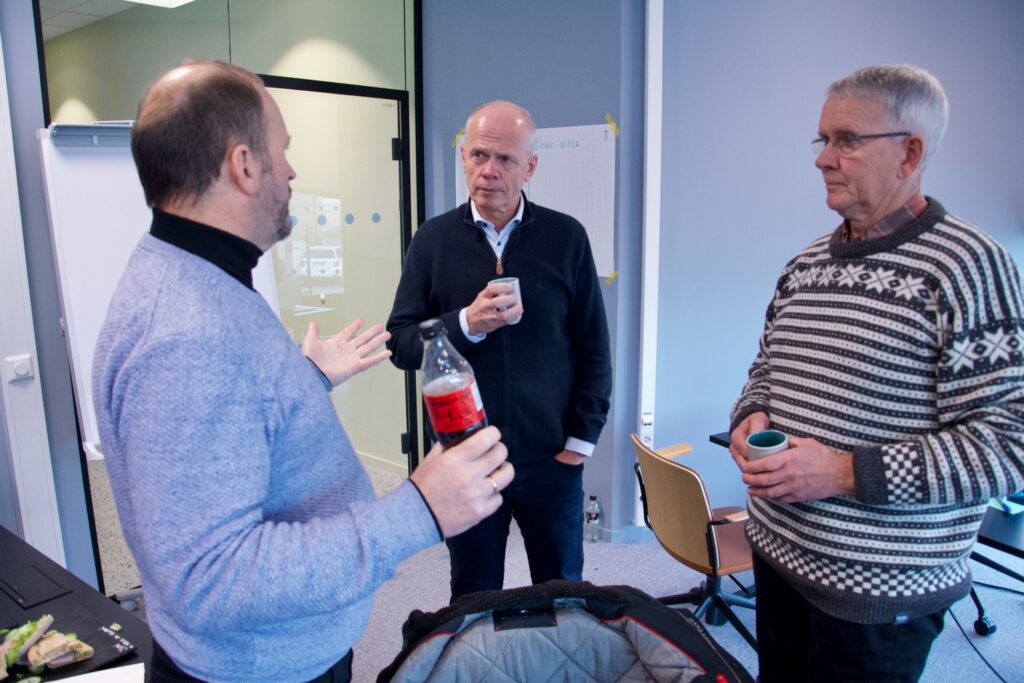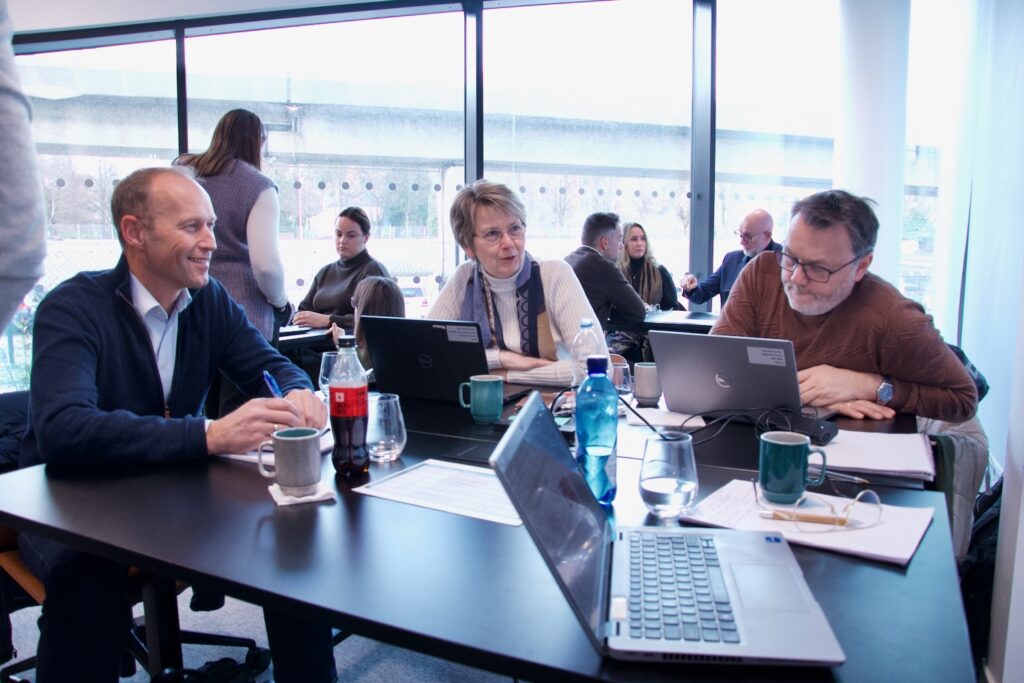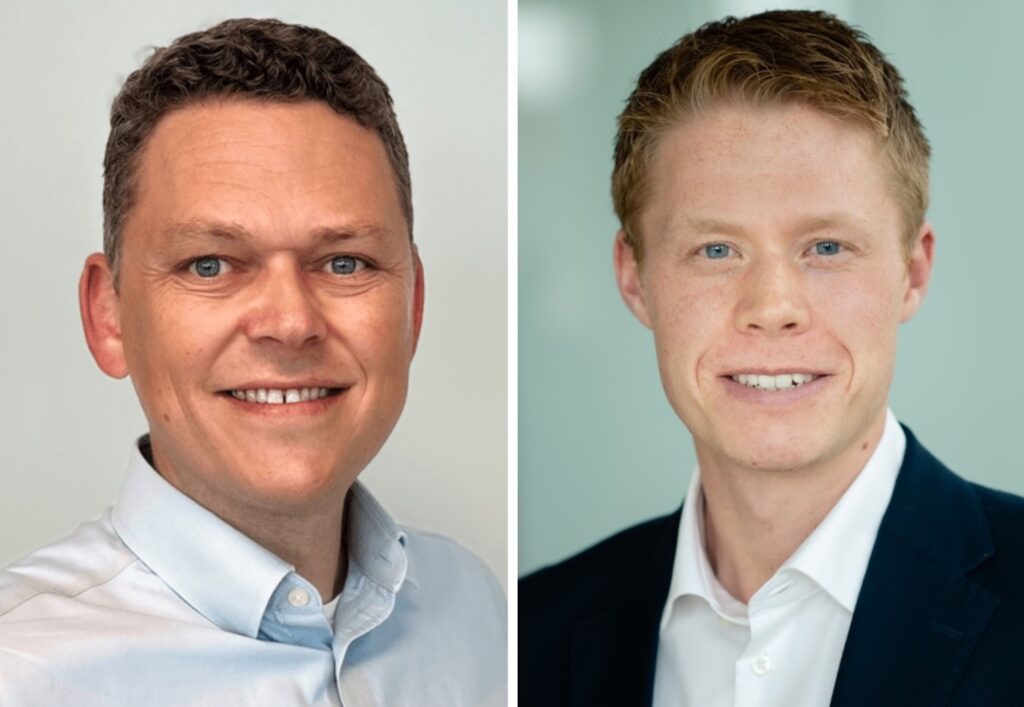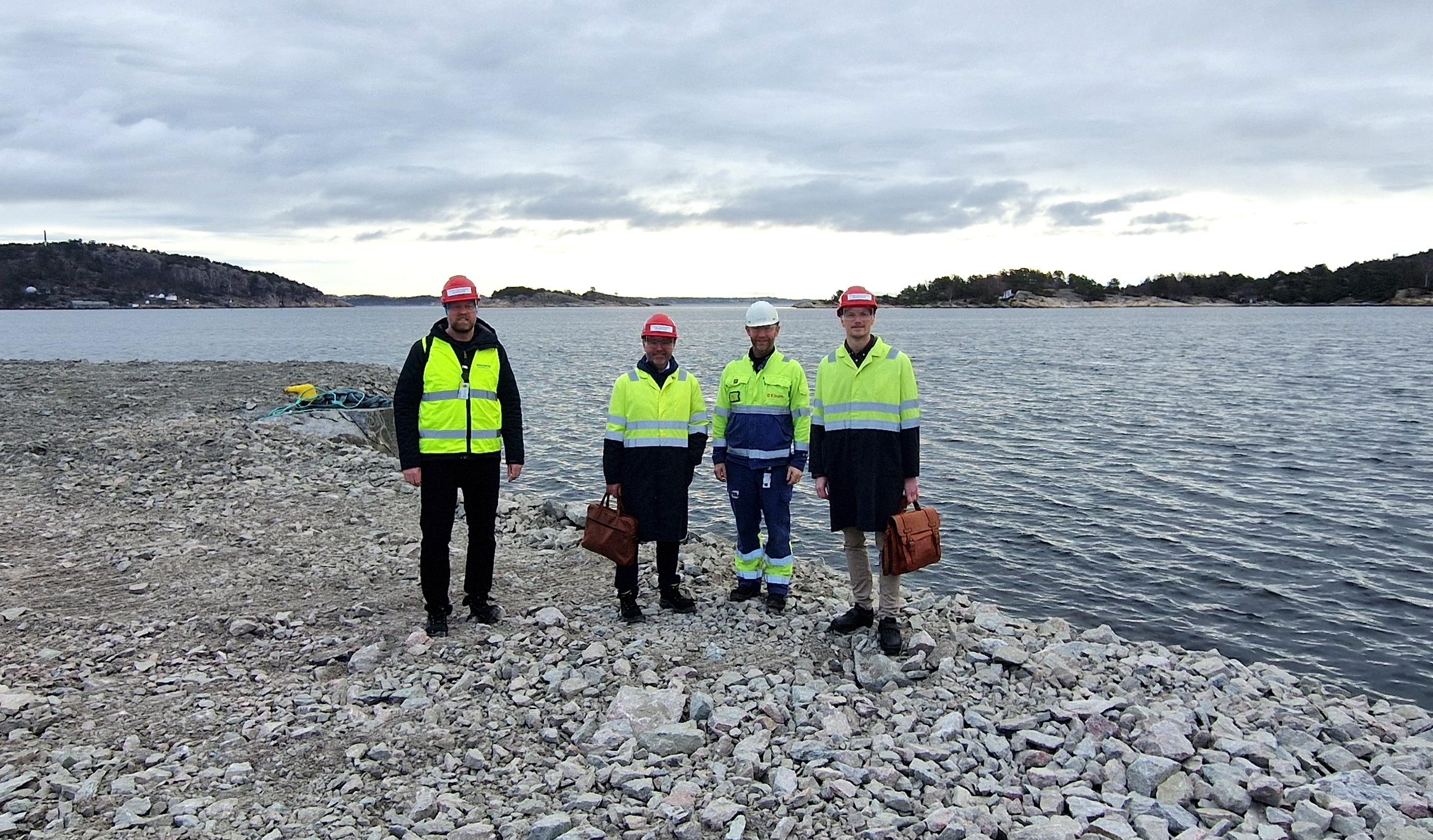“EU legislation is pushing large companies to standardize sustainability reporting. Small and medium-sized enterprises are next. Many have yet to grasp what is demanded from them, which is why we come together; to provide insight and practical advice,” says Jan Helge Viste, Project Manager Digitalization at GCE NODE.
Following previous courses at the NODE Business Development Lab, more specifically the course Sustainable Companies, four companies were offered a seat at the Reporting Sustainability pilot course offered in Kristiansand in November.
The four companies – Nymo, Once, Firenor and Vinje Industri – are assigned mentors from Capgemini and EY, two consultancy firms that are also part of the GCE NODE cluster.
“I love the fact that two cluster companies are sharing their competence with four other cluster companies. It serves as a testament to the power of clusters,” says Viste.
Assessing the company’s impact on society and vice versa – a double materiality analysis – was the main topic of the first of three sessions of Sustainability Reporting. Learning how to report on scope 1, 2 and 3 of Greenhouse Gas emissions was a central topic for the next sessions.
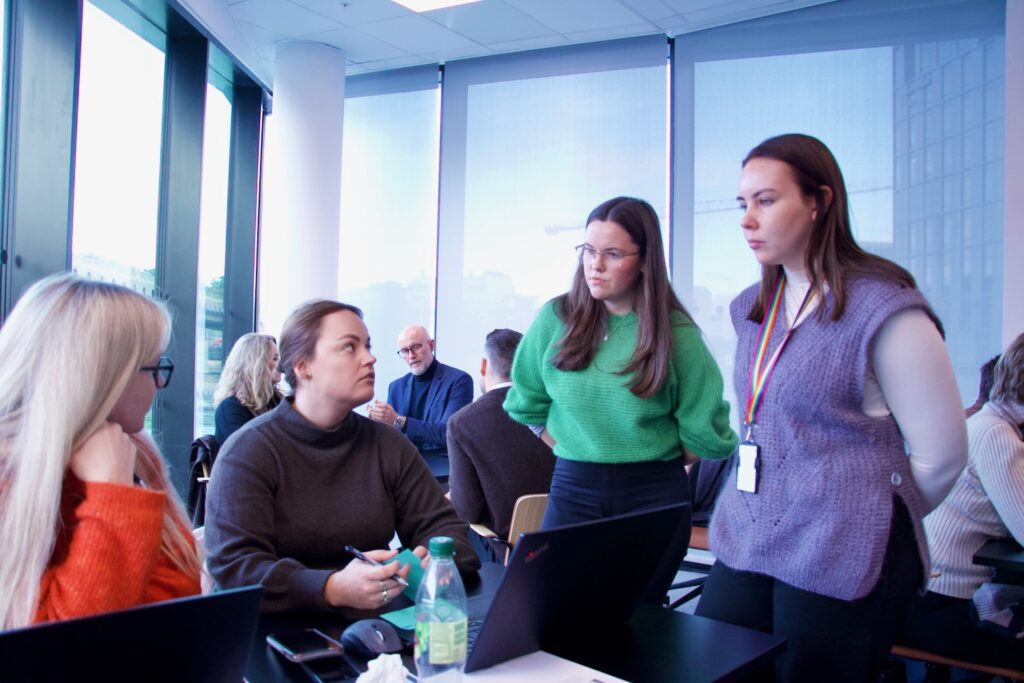
NET ZERO IN 2050
The European Union’s Green Deal sets the direction for sustainability. The EU pledges to reach net zero in 2050, while achieving economic growth. As part of the plan, EU is implementing a Sustainability Directive which will directly impact 1,700 Norwegian companies.
Starting in 2024, large companies of public interest will have to report in alignment with the European Sustainability Reporting Standards (ESRS). A year later, all larger companies will have to comply, and in 2026 listed SMEs will have to follow suit.
SMEs will probably face demands for sustainability reporting even earlier, since larger corporations must document their suppliers’ approach to sustainability.
“Taking part in this course will fast-track our competence building on sustainability reporting. By gaining access to experts and mentors within the field, we are able to quickly understand the structures and requirements of the recommended reporting scheme. This will enable us to submit our first sustainability report next year,” says Jørn Furnes, CEO of Vinje Industri.
Once, formerly known as Engineering Systems, has a different approach.
“We are here to explore if data from our system can be exported to provide relevant input to our clients’ sustainability reports. This may be a feature we can develop into our Once system,” says Egil Myr, CEO of Once.
